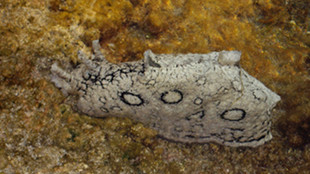 FLICKR, IAN HUGHES, EPREDATORSlow-moving sea hares protect themselves by squirting purple ink and a milky white substance called opaline at their lobster predators. According to a new study in the Journal of Experimental Biology, the opaline is so effective because it blocks the attackers’ sense of smell. While the disoriented lobsters try to brush off their antennae, the sea hares lumber away.
FLICKR, IAN HUGHES, EPREDATORSlow-moving sea hares protect themselves by squirting purple ink and a milky white substance called opaline at their lobster predators. According to a new study in the Journal of Experimental Biology, the opaline is so effective because it blocks the attackers’ sense of smell. While the disoriented lobsters try to brush off their antennae, the sea hares lumber away.
The paper’s authors said that this is the first predator defense mechanism to be discovered that works by blocking the senses. “It is the first demonstration involving not only the chemical senses, but to our knowledge, for any sensory system,” Charles Derby, a neuroscientist at Georgia State University, told BBC News.
They tested their hypothesis by coating spiny lobsters’ antennae with opaline and seeing how they reacted to the scent of shrimp juice. The animals’ chemosensory neurons responded less strongly to the smell than untreated lobsters’ neurons did. The scientists concluded that the sticky opaline was physically blocking the lobsters’ chemosensory receptors, which convey smell information to the brain. The lobsters with opaline-painted antennae also exhibited less activity in their motor pathways than normal, indicating ...





















